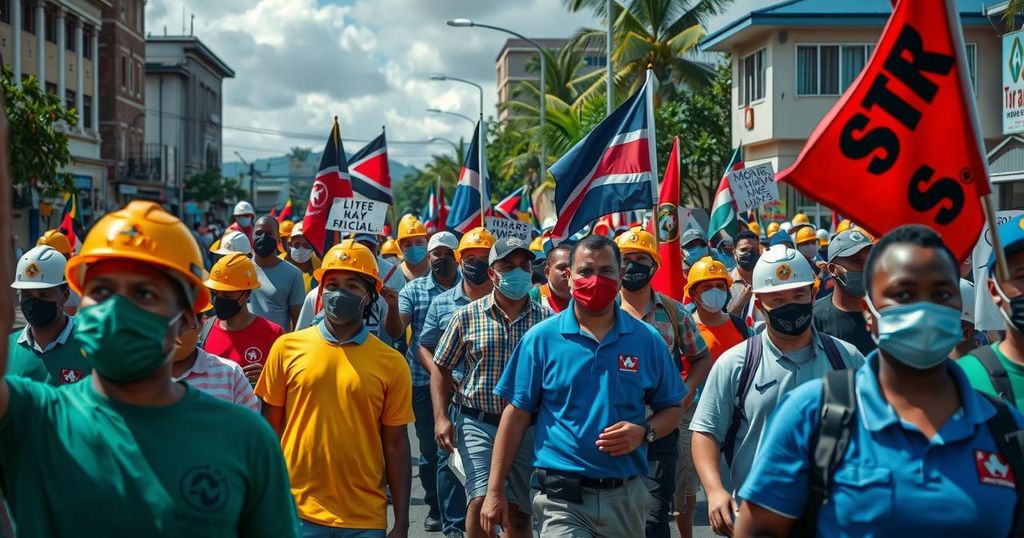Global Labor Movements: Supporting Workers in Trinidad and Tobago

Workers in Trinidad and Tobago are engaged in significant strike actions against the government’s dismantling of trade union rights, demanding fair compensation and recognition of labor rights. This follows a global trend in 2023 where strikes have surged in response to inflation and poor working conditions. Jamaica’s leadership has offered support to its workers, highlighting the need for better labor practices. A collective response to support Trinidadian workers is essential for advancing labor rights.
In recent times, workers across the globe, particularly in Trinidad and Tobago, have been demonstrating greater resolve in their strike actions against oppressive labor conditions and inadequate government support. The year 2023 saw an alarming rise in strikes in various countries, including the USA, where inflation fueled discontent among workers. In Trinidad and Tobago, public sector workers are grappling with the government’s systematic dismantling of trade union rights. Key sectors, such as portworkers and airline pilots, are demanding the recognition of trade unions, the reinstatement of collective bargaining rights, and fair compensation amid a backdrop of rising government salaries for officials. In contrast, Jamaica’s leadership has recently offered support to the struggling tourism sector workers. A proactive response is essential, where contracts with hotel investors prioritize worker welfare and fair practices. Solidarity with Trinidad and Tobago workers can foster an inclusive movement for labor rights, highlighted by ongoing actions from the National Trade Union Centre (NATUC).
The labor movement has seen a resurgence internationally as workers confront inflation and declining working conditions. Notably, 2023 has been marked by historical strike activity, particularly in the United States. This trend is mirrored in Trinidad and Tobago, where public sector employees are actively engaged in strikes against government actions that undermine their rights and labor protections. The calls for justice from various sectors reflect broader labor issues spanning the Caribbean and beyond, emphasizing the need for collective action and support for unionized workers. The response from political leaders varies, with some recognizing the importance of fair labor practices, while others pursue policies favoring corporate interests over worker welfare.
In summary, the landscape of labor rights in Trinidad and Tobago is evolving, as workers unite to demand recognition and fair treatment against a backdrop of governmental neglect. The support from Jamaica’s leaders for tourism industry workers illustrates a commitment to improving labor conditions. As solidarity movements gain momentum, it is crucial for the international community to stand with workers, advocating for their rights and welfare, and ensuring that collective bargaining principles are upheld. Support can be routed through organizational channels to amplify the calls for justice among workers in Trinidad and Tobago and beyond.
Original Source: www.jamaicaobserver.com







